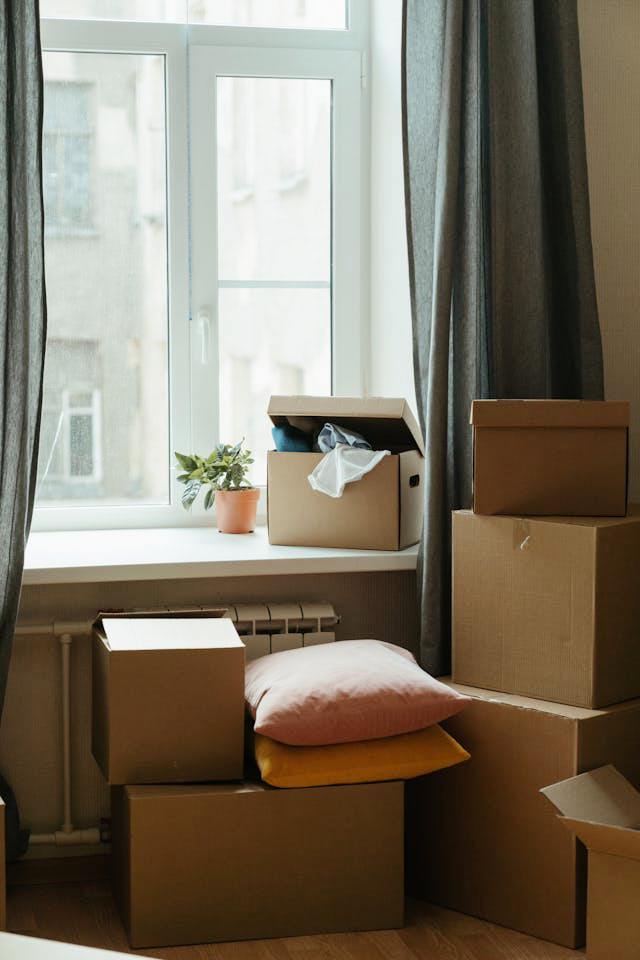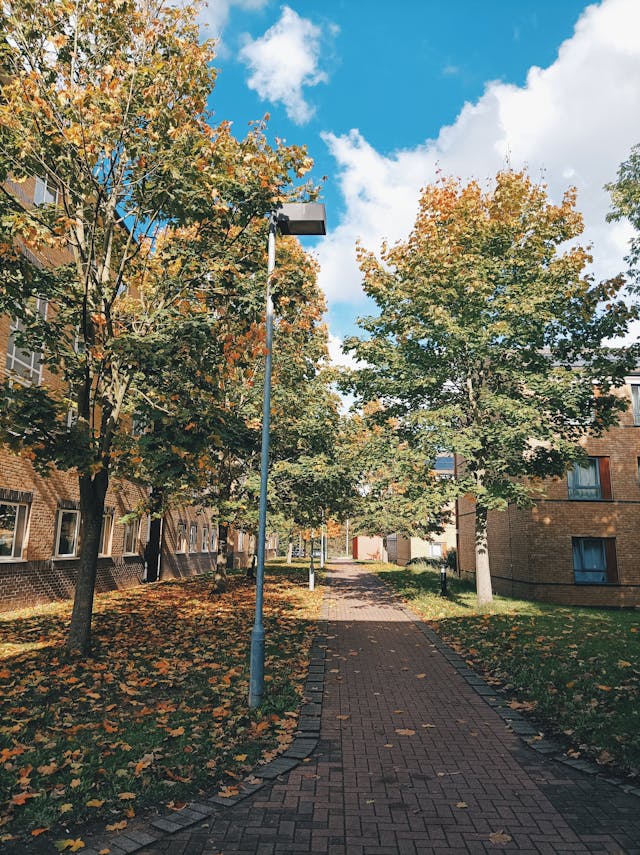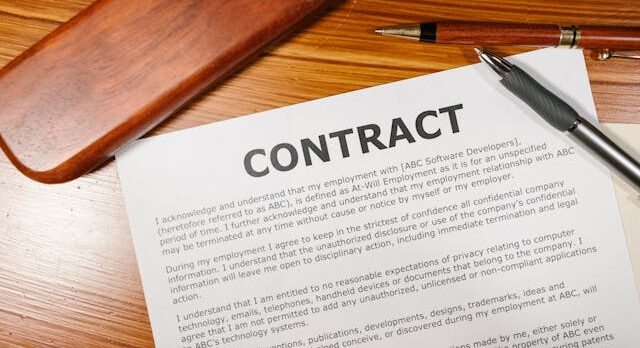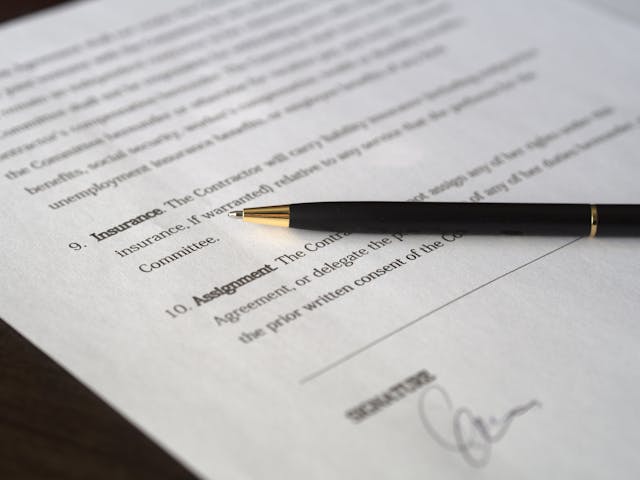From someone figuring it all out too!

Setting out on your own is a big deal, and honestly, it deserves to be treated like the major milestone it is. As a first-time apartment renter, it’s easy to feel totally overwhelmed (trust me, I’m right there with you). It’s your first real grown-up move, and while I’m genuinely excited, there’s also this low-key wave of anxiety that pops up every time I think about it.
I keep finding myself spiraling into questions: What if I hate my apartment? What if I pick the wrong one? Am I overthinking my budget? Wait… are my credit scores really that important? What should I be doing—and what should I absolutely avoid?
This post was born out of all that wondering and spiraling. It’s basically the blog post I wish I had, so I made it (lol) to stay on top of things, and hopefully, it’ll help you sidestep some common first-renter hiccups. Because if Murphy’s Law is to be believed (and… it kind of is), anything that can go wrong will go wrong. So let’s do our best to be two steps ahead.
Let’s get into it.
1. Set a Budget (Future You Will Thank You)
Here’s the thing: when you haven’t rented before, it’s so easy to underestimate (or totally ignore) how much everything adds up. Rent is just one part of the picture. There’s also electricity, internet, groceries (you’ll go through so much), and a million little things you don’t think about until you need them.
From what I’ve gathered, a good rule of thumb is to keep rent within 30% of your gross income. But everyone’s situation is different. Use a rent calculator to get a personalized idea. If your budget is tight, consider options like getting a roommate or building a little side hustle to help offset costs.
Personally, I’m planning to live alone (more on that next), but I’ve had to look at ways to creatively stretch my income without sacrificing comfort.

2. Do You Need a Roommate?
This was one of the first questions I asked myself, and I knew right away that I wanted to live alone. It’s probably part of the reason it’s taken me longer to make the move, but for me, that privacy is a big deal.
That said, living with a roommate can help ease the financial load. If you’re on the fence, weigh the pros and cons based on your personality and lifestyle.
Pros of a Roommate:
- Splitting rent and bills will save you money.
- Shared responsibilities
- Can be fun if you click
Cons of a Roommate:
- Less privacy
- Different lifestyles can clash.
- Potential conflict over chores or noise
Whether you go solo or pair up, make sure it’s a decision you make intentionally, not one you fall into.
3. Check Amenities and Utilities
This is one of those things I didn’t think about until I started comparing apartments. Suddenly I was like, “Wait… they charge for parking?” or “Laundry is not in-unit? That’s a dealbreaker!”
Make a list of non-negotiables and nice-to-haves for you. Here are a few amenities to consider:
- In-unit laundry or shared laundry
- Secure parking
- Pet-friendliness (even if you don’t have one now, you might later!)
- Proximity to transit
- Fitness center or pool
- Building security
- Utilities included (some apartments roll them into rent)
Knowing what matters to you will make decision-making easier down the line.
4. Choose the Right Neighborhood
Your apartment is important—but so is the area around it. I started by thinking about how far I wanted to be from the city, grocery stores, and my favorite coffee spots. Do I want peace and quiet or something a little more social? I love me some quiet, so I have to put this into consideration when house hunting.
Some questions to consider:
- Do you need public transit?
- How far is your commute?
- Do you want a buzzy, active neighborhood or one that’s quiet and residential?
- How safe does it feel walking around at night?
Use Google Maps and do a virtual stroll, or even visit the neighborhood in person at different times of day if you can.

5. Be Patient With the Search
This is where I really had to give myself grace. I thought I’d find the perfect apartment in a few weeks. Spoiler: it’s taken months. And that’s okay.
Start your search early and cast a wide net. Bookmark listings. Schedule tours. Ask all the questions. The right place will show up, but give yourself the breathing room to wait for it.
6. Watch Out for Rental Scams
This one scared me the most. When you’re excited to move out, it’s easy to rush and scammers love that energy.
Here’s what I learned:
- If it feels too good to be true, it probably is.
- Never send money before seeing the unit in person or doing a verified virtual tour.
- Check that the person you’re speaking to is the actual landlord or property manager.
- Search the address on Google—if it’s listed on multiple sites with different prices, that’s a red flag.
Trust your gut and take your time. Read this blog on how to spot and avoid a rental scam
7. Ask Questions (And Talk to Neighbors!)
During your apartment tour, don’t be shy. This is your future home; you’re allowed to ask questions like
- How’s the water pressure?
- Are there quiet hours?
- What’s the policy on maintenance requests?
- How’s the noise from neighbors or the street?
And if you get the chance, casually talk to a neighbor or two. They’ll give you the real scoop, like whether the landlord is responsive or if there’s a dog that howls all night.
8. Get Your Paperwork Ready
Rental applications usually ask for:
- ID (driver’s license or passport)
- Proof of income (pay stubs, job offer letter, bank statements)
- Credit score
- Rental history or references
I didn’t realize how much you’d need to prove you’re a “good tenant,” but now I’m pre-building a digital folder with all this stuff so I’m not scrambling when the right place pops up.

9. Do a Thorough Inspection
Once you get the keys (or even before), inspect everything. Turn on every faucet. Flush the toilet. Open and close all doors and windows. Check for mold, bugs, cracked tiles, or water stains.
Tip: Take time-stamped photos or videos during move-in so you’re not blamed for existing damage later.
10. Get Renters Insurance
I used to think renters insurance was optional… until I realized how many disasters it covers. Theft. Fire. Water damage. Even liability if someone gets hurt in your apartment.
It’s usually (under $20/month), and it gives major peace of mind. It’s so worth it.
11. Read Your Lease Carefully
Leases are legally binding contracts, and they’re often written in confusing language. Take your time. Ask questions. Make sure everything you verbally agreed on is written down.
For example:
- If the landlord says pets are allowed, it should be in the lease.
- If utilities are included, it should be in writing.
- If there’s an early termination fee, know exactly what it is.
Don’t rush this part!

12. Organize Your Move
Start a checklist. Book movers early. Deep clean the apartment before moving in. Change your address with the post office. Make a moving-day essentials box (snacks, chargers, toiletries, etc.).
Planning ahead = way less stress later.
13. Furnish Your Apartment Slowly
There’s no prize for furnishing your place in a weekend. I’m planning to start with the essentials: bed, table, seating, and lighting.
Then I’ll slowly layer in personality pieces. That way, I don’t blow my budget—or end up with things I don’t love.
Related: Must Have Items For Your First Apartment
Feeling ready yet?
If you’re reading this, chances are you’re right in the middle of the rollercoaster that is moving for the first time. I’m in it with you, figuring it all out, googling questions at midnight, and reminding myself that this is a learning curve—not a test I have to ace on the first try.
Your first apartment isn’t just about the square footage; it’s the start of your new chapter. So take your time. Ask the questions. Embrace the excitement and the nerves. You’ve got this, and I’m cheering you on every step of the way.
